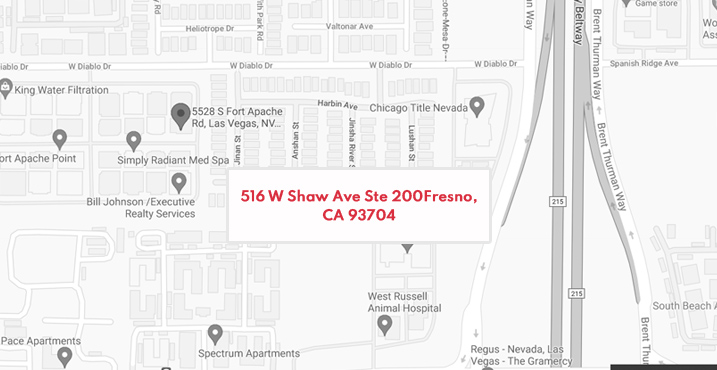Although each situation differs, it is always best to have a plan in place so that your financial and personal wishes are conducted according to your specific wishes upon your death.
Most people believe that having a family lawyer draft a will can answer all the specifics you want to be carried out upon your death. This, however, is usually not the case.
Specifically, Estate planning may be done by writing a will or setting up a trust via an overall estate plan. Your “last will” is a document that expresses your wishes regarding the distribution of your property; a trust is an arrangement that allows a third, more qualified party to hold and direct your assets, according to your specific instructions, in a trust fund.
The main difference between a will and a trust is when they take effect. Your will comes into effect after your death, while a living trust comes immediately into effect after it is professionally drafted and filed. So, while you are still alive, the living trust can be controlled and in force immediately. If you become incapacitated and can no longer make your financial, healthcare, or other vital decisions or you die, the person you specified to control the trust steps in to manage your affairs.
Also, If a will governs your property, the California Probate court will oversee all distribution of your assets to ensure that your wishes are conducted. However, all the contents probated become public information, and the probate court may take 12-16 months to fully chart out a distribution plan. On top of that, a typical probate process can cost up to ten percent of your estate’s value.
Properties passing under trusts, in most cases, avoid probate altogether. If your minor child is one of your beneficiaries, then the trust administration in Fresno will continue to hold and manage your property until they reach the age of majority.
Your choice of a will or trust is dependent on your financial and family situation. A trust, however, will allow you to achieve multiple objectives. Your best legal path is to discuss your wishes with a professional, knowledgeable Fresno family lawyer. Your lawyer will clarify what works best for you, your finances, and your family.
What Are Some Specific Differences between a Trust and a Will?
To keep it simple, the two main reasons you would create a trust are to avoid probate entirely and take advantage of the flexibility that a trust provides.
Some other differences are:
- A Trust will keep your assets out of probate.
- A trustor names a trustee to manage the assets of the trust indefinitely. Wills only names an executor who controls the assets of the probate estate until probate closes.
- A trust allows the information about your estate to remain private. In probate, information about your estate is made public.
- A “Declaration of Trust,” not a will, establishes the exact terms of the distribution of trust assets. Your trustee is bound to observe these terms.
- If you establish a trust and then die, the only thing that occurs regarding the trust is the accession of a successor trustee. This occurs, however, if you were the trustee at the time you died. The administration of trust assets will not be otherwise affected by your death.
- Unlike probate of a will, your estate will not have to pay a probate attorney or court fees after your death.
Your Fresno family or estate planning law firm’s guidance will be invaluable to you in making sure your wishes are followed to the letter and guide you as to what legal means you need to use to accomplish this goal.
Do I Need a Certain “Net Worth” to Consider Forming a Trust?
An excellent financial benchmark is: If you have a net worth of approximately $100,000, with a substantial amount of your assets in real estate, or have specific instructions on how and when you want your estate to be distributed among your heirs after you die, then you should consider a trust.
This may not seem like a significant “net worth” today, and most families’ homes put them into that category. However, going through probate can be a tricky situation at your death, and if your final wishes are important to you, then a trust will allow you to make your directives clear.
The primary purpose of your trust is to transfer your assets from one person to another, per your wishes and instructions. Trusts can hold many kinds of assets, including Investment accounts, houses, cars, etc. The trust will also avoid having your assets and family members go through a stressful probate process. With a trust, you can be assured that your wishes are conducted.
Are There Different Types of Trusts?
Simply put, yes, there are. A trust gives you the flexibility you require as every family’s assets, finances, and relationships differ.
Some of the types of trusts are:
- A Revocable Trust – This trust allows you to alter or end the trust at any point during your lifetime as you are the grantor who created the trust.
- Irrevocable Trusts – Once this irrevocable trust is created, it can’t be changed or terminated. A revocable trust you create in your life becomes irrevocable when you die. This type of trust may help protect your assets from creditors and lawsuits and reduce estate taxes.
A Special Needs Trust – If you have a loved one who is disabled, this trust can provide income to them after your passing. Still, it won’t disqualify them from government benefits, like Social Security Disability Income. Usually, though, your loved one doesn’t control any assets or funds, and someone you choose to manage the trust does.
There are many more types of trusts, as many different financial situations need to be addressed. Therefore, discussing your family’s needs with a Fresno estate planning lawyer is vitally important. Only in that way can you be sure to plan exactly as you should.
I Feel I Need a Trust Or an Estate plan; How Should I Proceed?
You indeed now begin to see that either or both legal documents can help ease the burdens on your family when you die and ensure your specific wishes are carried out exactly as you want them to be.
Consulting with a professional, empathetic Fresno estate planning law team is your mandatory first step in knowing exactly what will work for your specific situation. Your estate planning law team will also fully educate and guide you on what’s legally needed (a Will, a Trust, or more) to ensure your directives are followed in the best conceivable way.









